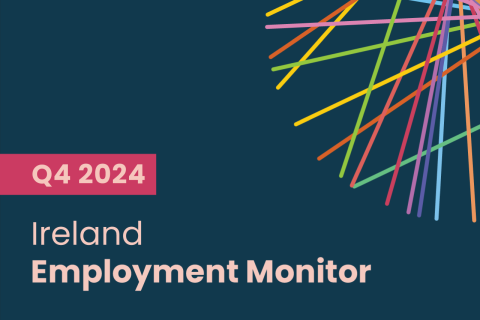Women in Risk & Compliance - Ruby Yadav, UniSuper Management

To celebrate International Women's Day on March 8th, this week we will be bringing you a series of guest blogs from leading senior females in Risk and Compliance. They will be discussing their success, career-defining moments and what advice they would give to another female looking to pursue a similar career. This is what Ruby Yadav, Chief Risk Officer at UniSuper, had to say.
 Profile: Ruby Yadav leads the risk function at UniSuper and is responsible for providing independent risk, compliance, assurance and financial crime response services. She has a firm belief that risk management starts with people not processes. She is committed to breaking the mould around conventional risk management mindsets and is focussed on driving change to create value.
Profile: Ruby Yadav leads the risk function at UniSuper and is responsible for providing independent risk, compliance, assurance and financial crime response services. She has a firm belief that risk management starts with people not processes. She is committed to breaking the mould around conventional risk management mindsets and is focussed on driving change to create value.
Her approach is backed by her extensive experience in financial services and consulting organisations. She has held several senior roles at ANZ, KPMG, RMIT University and GE Capital. Her career and expertise include risk management, internal audit, compliance, regulator relationships, corporate governance and major project advisory. Ruby has a master’s degree in accounting from RMIT University and was a non-executive member of the Audit & Risk Committee for Wesley Mission Victoria.
What are the key habits that you feel make you successful?
Believing in myself even when things are not going well, investing in relationships, always listening and learning have been some of the most valuable habits that I have formed over time – None of them came easy but have been well worth the effort.
Looking to hire Risk or Compliance team members? Get in touch and we can help you get it right.
What's the most valuable piece of advice you have received in your career and how did it help you?
During a particular rough patch, I sought advice from one of my mentors. Her words were simple “When things go wrong it’s not all because of you and more importantly when things go right it’s not all because of you”. It has stayed with me and has helped me keep perspective through my highs and lows.
What's the most challenging situation you have faced in your career and how did you overcome it?
Early on in my career, as an immigrant in the country, I found it really challenging to get my foot in the door. The lack of local experience meant I struggled to get an interview for months. Completely co-incidentally I shared my story with someone at a social event and they decided to give me a go – They took a risk on me, offered me my first role in the country working as a contractor one day a week and I haven’t looked back since. That was my first lesson on building a network and making the most of every opportunity - no matter how big or small.
How do you approach making a difficult decision?
My starting point is to always articulate the problem I am trying to solve through the decision making and then try and recognise the biases that may be at play both for myself and others involved in the decision making process. It then allows me to tap available resources – whether it’s data, facts or experience – to inform the decision making, particularly as all these resources are imperfect in some way. I also try and canvass multiple options/ scenarios in the process so I avoid any early anchoring in my analysis.
What do you believe will be the most in demand skills over the next 10 years within risk management and why?
10 years is a very long time in today’s day and age and I prefer to rely on agility and responsiveness to change rather than crystal ball gazing into the future.
Looking at the current trends though, I have no doubt that understanding the geo-political context as the geographical boundaries dissolve in business, ability to understand and keep pace with technology as it becomes more integrated in every part of the business, analytical skills to assess logic and algorithms as manual processes shrink and skills to work with a diverse workforce utilising rapidly evolving ways of working will become increasingly important over time.
Join in on the conversation on Twitter for this years' International Women's Day using the hashtag #BalanceforBetter














